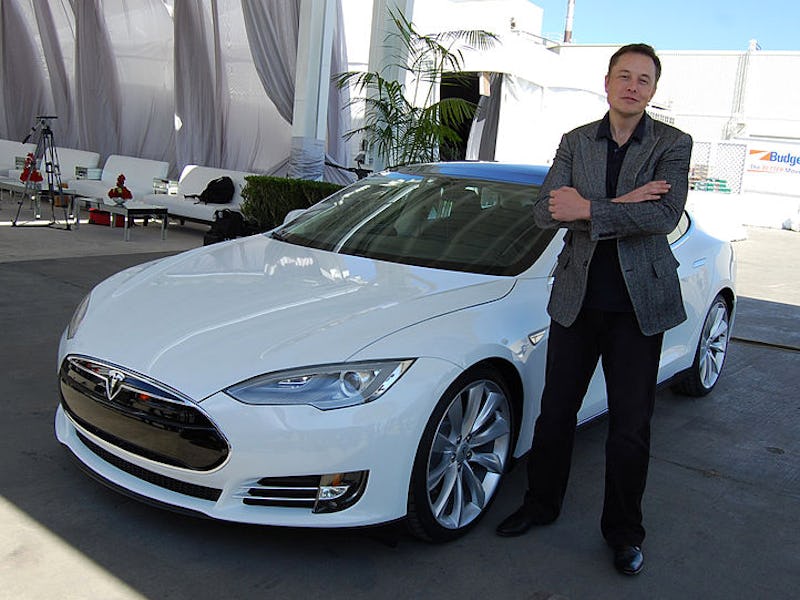Rubbing Testosterone Gel on Men Made Them Crave Luxury Goods in Weird Study
Scientists pinpoint a link between testosterone and social status.

Millennials swaddled in Supreme and gearheads salivating over the Tesla Model Y aren’t so different than elaborately plumed peacocks or large-horned stags. All have evolved to invest in signals that are associated with social rank, whether that’s a $300 sweatshirt or some emerald-hued feathers. According to a new study in Nature Communications, the animal kingdom’s shared desire for status-boosting “luxury” goods is driven by the same chemical: testosterone.
In the study, released in early July, researchers examined the relationship between testosterone and the desire to rise to the top of social hierarchy using a weird experiment in which men were rubbed with testosterone-laced gel and then were asked how much they wanted luxury goods.
“Testosterone does not increase aggression per se, but rather the motivation to promote one’s status,” first author and Wharton School assistant marketing professor Gideon Nave, Ph.D. and his colleagues write.
Gold chain and Gucci: check.
The sex steroid hormone testosterone is associated with a wide range of reproductive and social behaviors. For example, previous studies have found that men with lower testosterone levels are more likely to be better dads, and men with higher testosterone levels are more likely to cheat. Crucial to this study was the finding that testosterone levels increase when men are in situations related to social rank, whether that’s competing, dating, or driving a nice sports car.
So, the researchers set out to see how rubbing testosterone-infused gel over male participants’ bodies would affect their desire for and interpretation of luxury goods, which the researchers used as a proxy for social status. They write:
Participants were instructed to remove the clothing from their upper bodies and apply the entire contents of the gel container to their shoulders, upper arms, and chest, as demonstrated by the research assistant, and were told to wait until the gel fully dried before putting their clothes back on.
Four and a half hours later — the amount of time it takes for the testosterone from the gel to stabilize at high levels — the study group of 125 men and the placebo group of 118 men participated in two studies. In the first, they were asked to indicate their preference for various apparel brands with different associations of social rank. For example, the researchers deemed Calvin Klein jeans to have a higher social ranking, while Levi’s jeans were ranked lower.
These rankings were unknown to the study participants, yet the experiments showed that men in the testosterone group consistently preferred the brands with a higher social rank compared to those in the placebo group. Men in both groups had their saliva tested multiple times to measure testosterone levels.
The second part of the study was designed to see how higher levels of testosterone would affect attitudes towards “positional goods” that were described as “status-enhancing” rather than as “power-enhancing” or higher quality. The study participants were shown images like the ones below, then asked which they would prefer and why.
Task measuring attitudes towards identical goods associated with different rank-enhancing strategies and results.
Just as the participants who were rubbed with testosterone showed a greater preference for brands associated with a higher social ranking, in this study testosterone was also associated with an increase in positive attitudes toward items described as “status-enhancing.” A watch that was a “symbol of a way of life,” for example, was much more desirable than a high-quality watch.
“Taken together, these findings suggest that the consumption of positional goods may stem, at least partly, from biological motives,” the researchers write. “By adopting an evolutionary perspective, we contribute to a growing body of work in economics uncovering the adaptive function of consumption and complement the increasingly rich nomological network around how status processes govern individuals’ thoughts, feelings, and behaviors.”
The researchers note the caveat that status signals are not always universal and that cultural differences play a role in determining what factors can boost social rank. In the United States, at least, it might serve Apple, streetwear, and car stores well to leave a few packets of “sales gel” laying around the showroom.